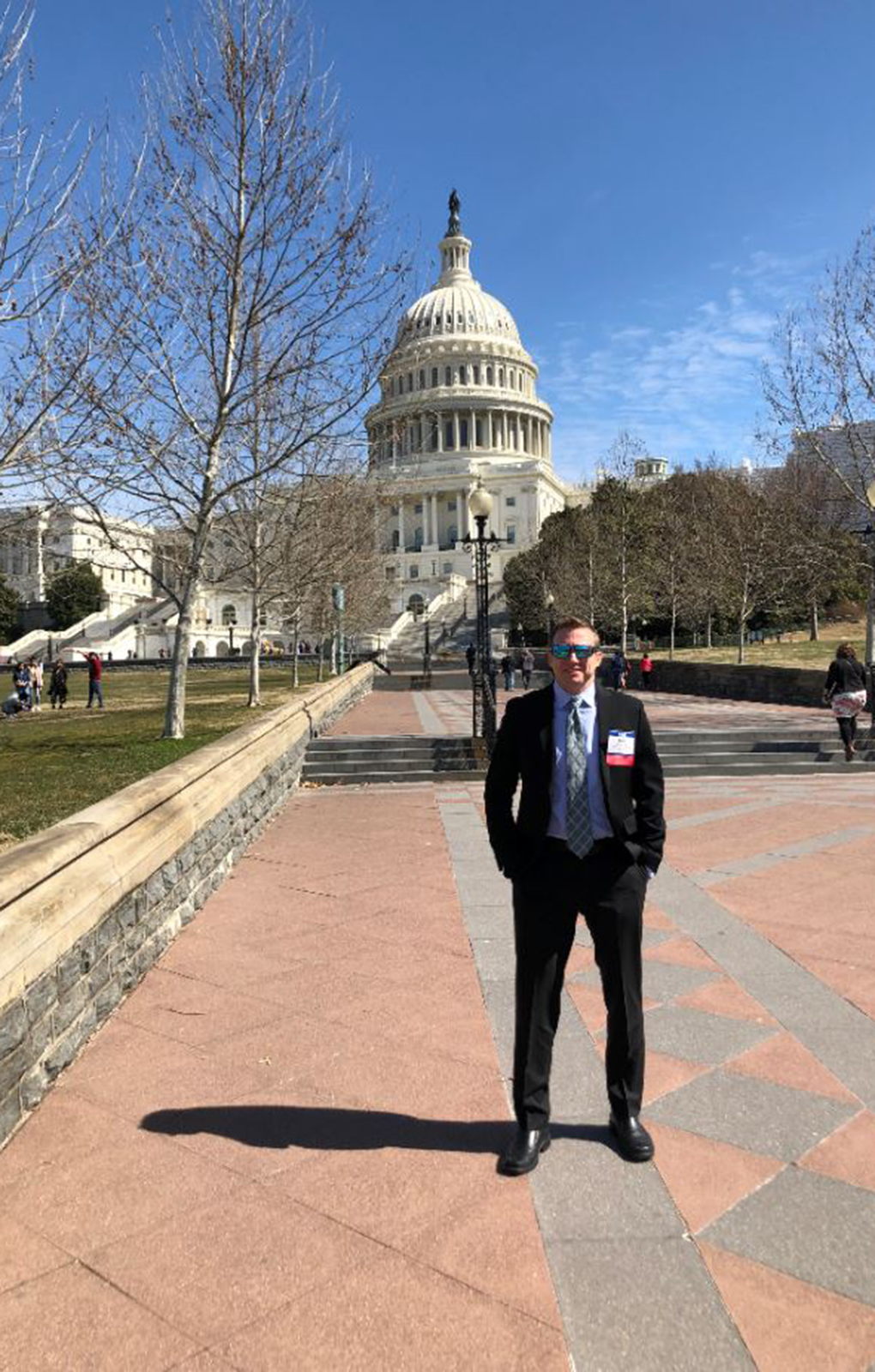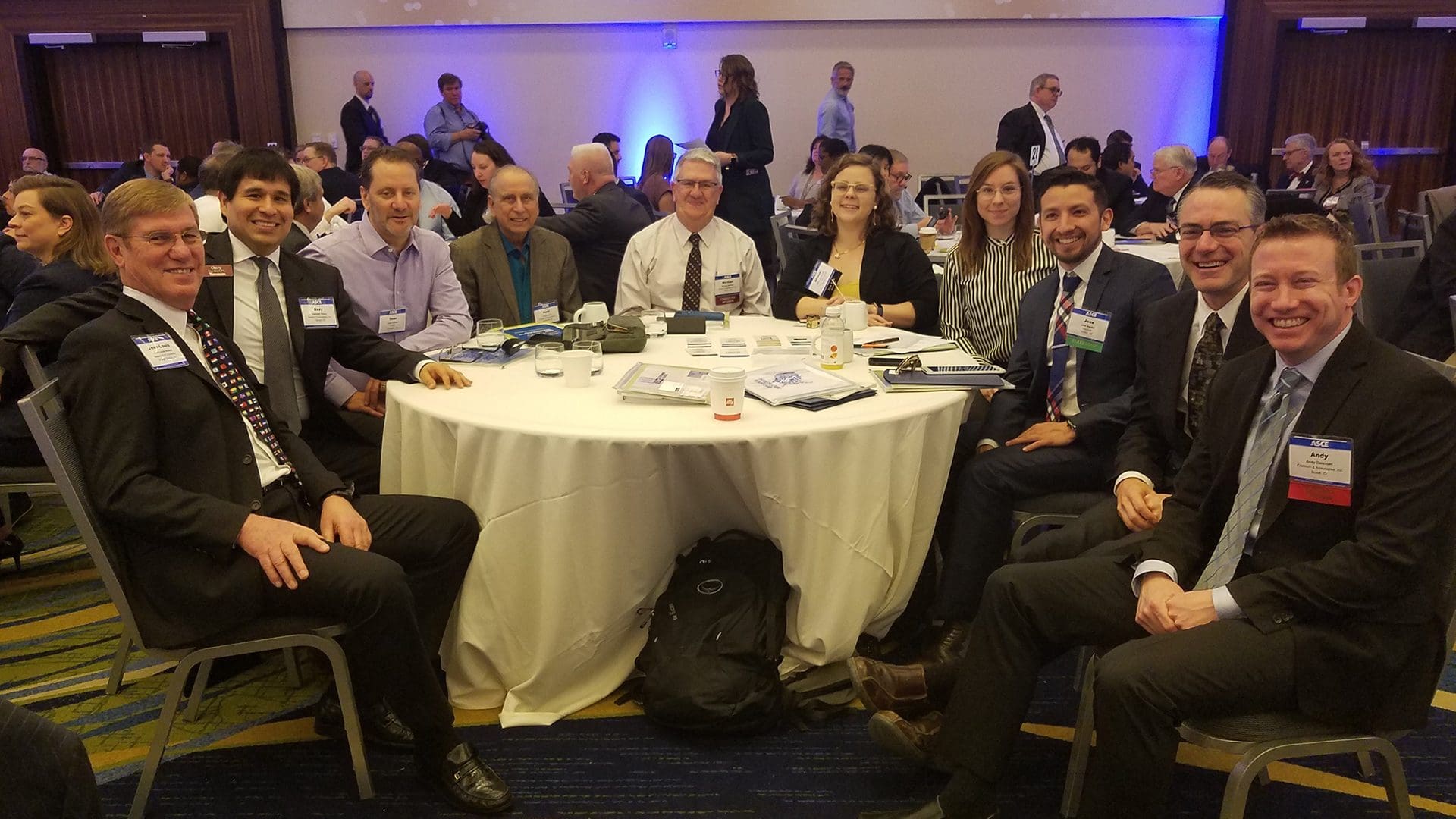April 18, 2019
 More than 250 members of the American Society of Civil Engineers (ASCE) convened for the organization’s annual Legislative Fly-In March 12 – 14, 2019. Attendees from every state in the country, the District of Columbia, and Puerto Rico met with legislators to discuss key issues such as infrastructure spending and finding solutions to fix the Highway Trust Fund (HTF). ASCE also sponsored workshops about lawmaking and techniques for effective advocacy during the event.
More than 250 members of the American Society of Civil Engineers (ASCE) convened for the organization’s annual Legislative Fly-In March 12 – 14, 2019. Attendees from every state in the country, the District of Columbia, and Puerto Rico met with legislators to discuss key issues such as infrastructure spending and finding solutions to fix the Highway Trust Fund (HTF). ASCE also sponsored workshops about lawmaking and techniques for effective advocacy during the event.
I was grateful for the chance to attend the ASCE Fly-In for the third time this year, to represent Kittelson and connect with members of Congress from my state of Idaho. Here are five key highlights I took away from the event. (If you attended as well, let me know what stood out to you!)
1. A bipartisan infrastructure bill is long overdue.
Infrastructure spending was the hot topic at 2019’s ASCE Fly-In. In an era of polarization, one thing Democrats and Republicans can agree on is the value of improving America’s infrastructure. We are overdue for a bipartisan bill to protect and secure our nation’s future framework.
Pay attention to Congressional conversations over the next few months. The most recent Infrastructure Report Card rated our nation’s infrastructure a D+ (not very good, I know). ASCE, the American Trucking Association, AAA Auto Club, and U.S. Chamber of Commerce have all come out in support and testified on this topic, urging Congress to take action on this critical issue.
2. Fixing the Highway Trust Fund is a turnkey solution.
The Highway Trust Fund (HTF) pays for construction and repair of America’s roads, bridges, and transit systems. Funding for the HTF comes from the federal motor fuel excise tax which is currently 18.4 cents a gallon for gasoline (24.4 cents for diesel) and hasn’t changed since 1993 at the time of this writing. Back in 1993, gas was $1.12 per gallon and you could buy a new car for less than $13,000. Today, everything costs more, including road repairs, but federal funding remains at the same level it did in 1993. In the last five years, 27 states raised or adjusted their gas taxes to compensate. By gradually increasing the federal gas tax by five cents per year over the next five years, then indexing it to inflation, the federal government could follow suit and make a big difference.
An adequately-funded Highway Trust Fund could save consumers and businesses billions in vehicle operating costs, travel time delays, and safety expenses alone.
3. The appropriations stage is just as important as passing a bill.
The importance of appropriations was another major takeaway from this year’s Legislative Fly-In. In brief: passing a bill establishes a new program, but the effectiveness of that new plan depends on how much funding it receives from an appropriations committee. ASCE’s position is that we need immediate adequate funding to existing federal infrastructure, research programs and accounts.
Unfortunately, established infrastructure programs such as the National Dam Safety and Rehabilitation Program, National Park Service, Clean Water State Revolving Fund and BUILD grants have not been adequately funded. We urge everyone to be involved with their senators and representatives on the Appropriations Committee to pass legislation that funds our infrastructure programs.
4. Hollywood has a lot to teach us about effective advocacy.
The Congressional Management Foundation’s presentation on advocacy storytelling was a fascinating exploration of decision-making through the lens of Hollywood. ASCE showed that a well-crafted story told by an engaging presenter can be more effective than any presentation deck because of how our brains digest information. The presentation shared six elements to successful storytelling that included:
1. Setting the stage
2. Painting the picture
3. Describing the fight/conflict
4. Discovery/the element of surprise
5. Overcoming adversity–introduce the potential for success and joy
6. Finishing with the hook (closing statement)
The logical part of the human brain can be quickly overwhelmed by too many facts. When this happens, the intuitive part of the brain takes over. A good story that’s well told appeals to the intuitive side of the brain. Stories are also easier to remember, fun to share, and can appeal to the hearts and minds of lawmakers.
5. Thoughtful, open communication can create change.
I believe you can make a difference with your members of Congress through targeted and intentional communication, and the Legislative Fly-In was an excellent example of that. ASCE did a great job giving members the chance to learn, network, and connect with other participants and lawmakers. The event demonstrated how passionate individuals can make a positive impact through open communication and cooperation by interacting with decision makers. Make your voice heard, come prepared, and share your thoughts with your representatives. I am grateful to ASCE and Kittelson for giving me the opportunity to attend, connect with Congress, interact with other ASCE members and staff, and help influence a future investment in our infrastructure and communities.
Did you attend #ASCE2DC? Let’s keep the conversation going. Connect with Kittelson on Facebook, LinkedIn, Instagram or Twitter, or feel free to reach out to me directly!

